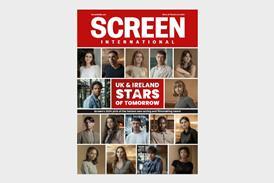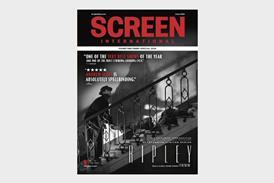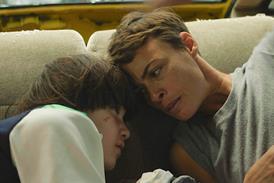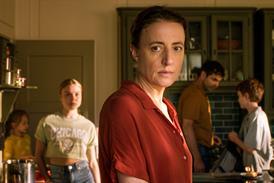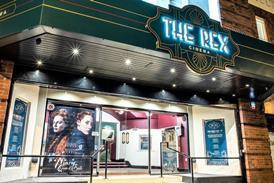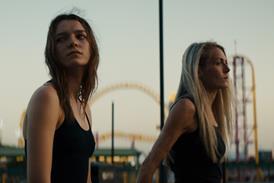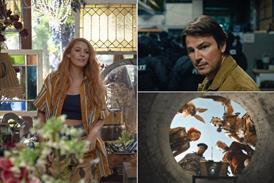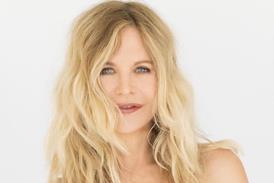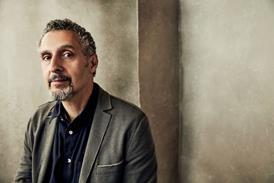The life and accomplishments of Mary Robinson, the first female President of Ireland, are celebrated in this unctuous documentary

Dir. Aoife Kelleher. Ireland. 2024. 94 mins.
Mary Robinson, the international stateswoman and former President of Ireland, is rightly venerated in her home country as a uniting figure in divisive times, and a champion of women’s rights in a place that cared little for them at the time she took up office in 1990. Mrs Robinson, a documentary made in co-operation with the now-80-year-old leader and her family, reflects that respect, almost genuflecting before her considerable achievements on the domestic and world stage. It’s a simply-phrased work whose tone of ponderous homage threatens at times to overwhelm her own considerable lightness of touch.
Gives the viewer a fuller sense of what it meant to be Mary Robinson when she became the first female President of Ireland
Robinson’s status as a national touchstone and the opportunity to reflect on the recent past will see Mrs Robinson into good play in Ireland, where it releases on August 24 through Break Out Pictures, although some may bemoan its somewhat leaden touch. Drone shots of the Emerald Isle and a trad-music bent can lend it an air of The History Channel. It tends to jig around, too: a picture is painted of a country where women are second class citizens before home video footage shows Robinson magically arriving in Dublin’s Trinity College then heading off to Harvard in 1968. One minute her parents are refusing to attend her wedding to her Protestant class-mate Nick Robinson, the next she’s saying: “I was lucky when I got elected to the Senate.”
While she has led an incredible – and fast-paced – life, a more focused approach might help. However, a picture does emerge through the loose edit, and director Aoife Kelleher holds Robinson to account for some of her very-few mis-steps. An early inclination to look to Richard Branson and Peter Gabriel – patrons of independent global leaders organisation The Elders, which Robinson now leads – for talking-head quotes and to slather U2 over footage of the Vietnam War is eventually replaced by Irish commentators tracking her unique history. This gives the viewer a fuller sense of what it meant to be Mary Robinson when she became the first female President of Ireland, and what it meant to everyone else in the country – and still does.
As the chair of the Elders, which was founded by Nelson Mandela to deploy the wisdom of experienced world leaders to help guide future ones, Robinson has devoted herself to climate change. It is a continuation of her forthright advocacy as head of the UN Refugee Agency (UNHCR) at the time of 9/11; her determination to usher change during her presidency by being the first head of state from Southern Ireland to ever visit the North and meet the Queen; and, earlier, when she devoted her considerable powers as a lawyer to defending the radical feminists of Ireland who brought contraceptives on a train from Belfast to the church-bound South and its capital, Dublin.
Mrs Robinson starts with the former Mary Burke reading from Eleanor Roosevelt’s Universal Declaration of Human Rights before moving to Cop 26 in Edinburgh in 2020, during which the masked politician is visibly upset not to achieve targets. It’s a serious-minded film, but it’s not a very subtle one: Robinson talks about visiting a glacier in Greenland and it cuts to drone shots of… an anonymous glacier. Stock footage – of Ireland, of Vietnam, of Martin Luther King and Bobby Kennedy’s assassination — is Kelleher’s mainstay. Yet she does have good access to Robinson, even if it’s shot from footwell-up in a limousine as the stateswoman makes her way around various cities pleading for action against climate change.
Robinson seems eternally tireless. She spent seven years as President of Ireland from 1990 to 1997, but decided not to run for another term at the behest of her husband (and mainstay) Nick to have a more family-centred life. It clearly didn’t happen. She ended up leaving the presidency early and in a hurry to take up her job at the UNHCR – a ‘big mistake’, she now admits, as was her strange involvement in the Dubai princess abduction case. The treatment of these two incidents does give the film a sense of even-handedness, of not quite being a hagiography.
Mrs Robinson cuts a few times to Robinson’s childhood home, literally situated on the bank of the river Moy in Ballina, where the only daughter of four children would dream of a more equal world. There’s an air of self-importance to the way the documentary tackles this life-long theme, which belies how its own subject has behaved throughout her remarkable life and career. Mrs Robinson’s main problem is that it isn’t as sharp as Mary Robinson herself.
Production companies: Loosehorse Productions
International sales: Loosehorse, info@loosehorse.ie
Producers: Trisha Canning, Cormac Hargaden
Cinematography: Matthew Kirrane
Editing: Juangus Dinsmore, Paul Mullen
Music: Hugh Rogers, Ray Harman


